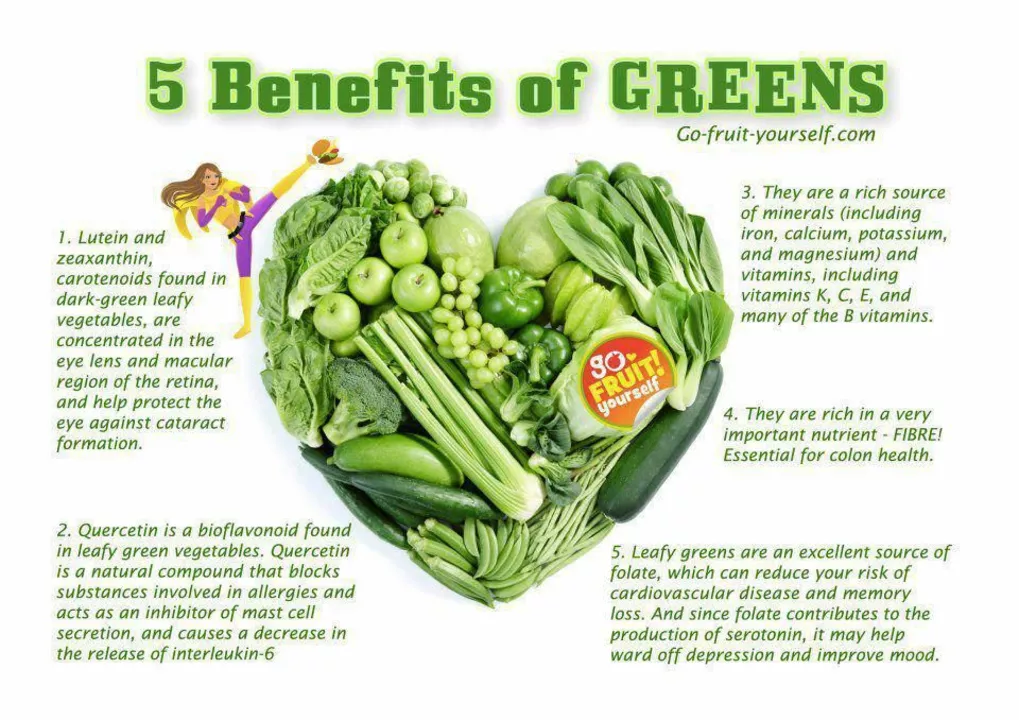
Introduction: The Importance of Folate for Eye Health
As a health-conscious individual, I often find myself researching various nutrients and their effects on our overall well-being. One such nutrient that has caught my attention is folate, also known as vitamin B9. Folate plays a crucial role in our body's functioning, and a deficiency in this nutrient can lead to numerous health issues, including some that affect our eyes. In this article, I will dive deep into the relationship between folate deficiency and eye health, providing you with all the information you need to know to maintain good vision.
Understanding Folate: Functions and Sources
Before we delve into the link between folate deficiency and eye health, it's essential to understand what folate is and its various functions within our body. Folate is a water-soluble B vitamin that helps with DNA synthesis, cell division, and the production of red blood cells. It is also vital during pregnancy for the proper development of the fetal nervous system.
Folate can be found in a variety of food sources, including leafy green vegetables, fruits, legumes, and fortified grains. Some examples of folate-rich foods are spinach, kale, asparagus, oranges, and lentils. It is worth noting that the synthetic form of folate, known as folic acid, is commonly used in supplements and fortified foods.
The Connection Between Folate Deficiency and Eye Health
Now that we have a basic understanding of folate and its functions let's explore the connection between folate deficiency and eye health. A deficiency in folate can lead to an increased risk of developing age-related macular degeneration (AMD), a leading cause of vision loss in older adults. AMD occurs when the central part of the retina, known as the macula, deteriorates, leading to difficulty in focusing on fine details and central vision loss.
The exact relationship between folate deficiency and AMD is not entirely understood, but it is believed that low levels of folate contribute to the build-up of a substance called homocysteine. Elevated homocysteine levels have been linked to damage to blood vessels in the retina, which could, in turn, contribute to the development of AMD.
Folate Deficiency and Its Impact on Other Eye Conditions
While the connection between folate deficiency and AMD is the most well-known, a lack of folate has also been linked to other eye conditions. For example, folate deficiency has been associated with an increased risk of developing cataracts, a condition where the lens of the eye becomes cloudy, leading to impaired vision. Additionally, some studies have suggested that low folate levels may contribute to the development of glaucoma, a group of eye conditions that damage the optic nerve, often due to increased pressure within the eye.
Although more research is needed to fully understand the relationship between folate deficiency and these other eye conditions, it is clear that maintaining adequate folate levels is essential for good eye health.
Signs and Symptoms of Folate Deficiency
Since folate deficiency can have such a significant impact on our eye health, it's crucial to be aware of the signs and symptoms of this condition. Some common symptoms of folate deficiency include fatigue, weakness, pale skin, shortness of breath, and irritability. In more severe cases, folate deficiency can lead to anemia, which presents with additional symptoms such as rapid heart rate and shortness of breath.
If you suspect that you may have a folate deficiency, it is essential to consult with a healthcare professional for proper diagnosis and treatment.
Preventing Folate Deficiency for Optimal Eye Health
With the knowledge of the potential consequences of folate deficiency on eye health, it's essential to take steps to prevent this condition. One of the most effective ways to maintain adequate folate levels is through a balanced diet rich in folate-containing foods. As mentioned earlier, some excellent sources of folate include leafy green vegetables, fruits, legumes, and fortified grains.
In addition to a healthy diet, some individuals may benefit from taking a folic acid supplement, especially those at risk of deficiency, such as pregnant women or individuals with certain medical conditions. Always consult with a healthcare professional before starting any supplement regimen.
Conclusion: Prioritizing Folate for Healthy Vision
As a blogger passionate about health and wellness, I believe it's essential to spread awareness about the importance of various nutrients, such as folate, in maintaining our overall well-being. Folate deficiency has been linked to several eye conditions, including age-related macular degeneration, cataracts, and glaucoma. By ensuring we consume adequate levels of folate through a balanced diet or supplementation, we can take a proactive approach to maintaining our eye health and preserving our vision for years to come.
8 Comments
Write a comment
More Articles

Top Alternatives to Augmentin in 2024: A Comprehensive Guide
This article explores seven alternatives to the antibiotic Augmentin in 2024, detailing various medications that can treat a range of infections effectively. Highlighting the pros and cons of each alternative, it aims to provide a comprehensive guide to those in need of antibiotic options. From Doxycycline to Ceftriaxone, readers will find an in-depth look at benefits and possible side effects. The guide also includes a comparison table for easy reference, helping readers make informed decisions about their health.


Steph Hooton
May 6, 2023 AT 22:57Ensuring sufficient folate intake is a practical step toward preserving visual acuity. Understanding the definiton of adequate intake helps set realistic goals. Incorporating leafy greens such as spinach or kale into daily meals can markedly improve serum folate levels. For individuals prone to fatigue, a modest increase in folate may also alleviate related symptoms, thereby supporting overall ocular health. While supplements are available, obtaining nutrients from whole foods remains the most reliable approach. Remember, consistency in diet often trumps occasional fortification.